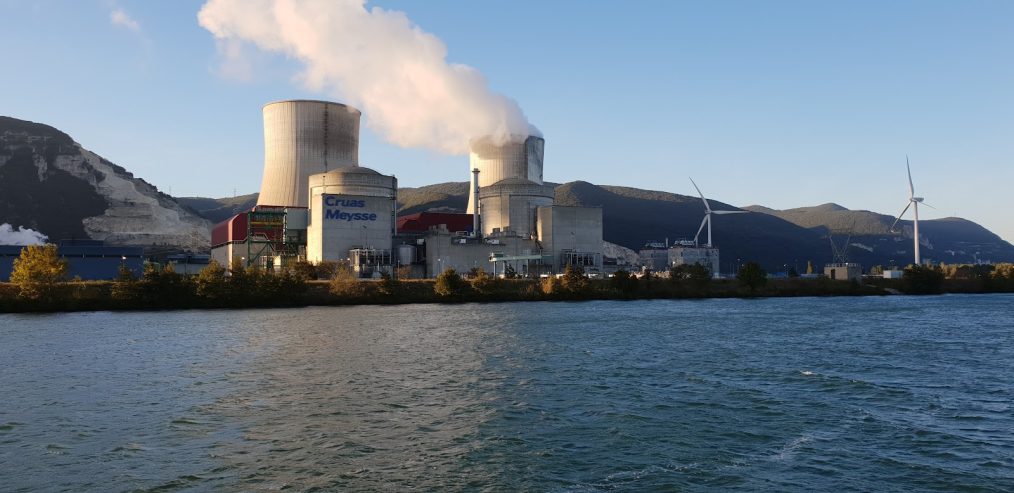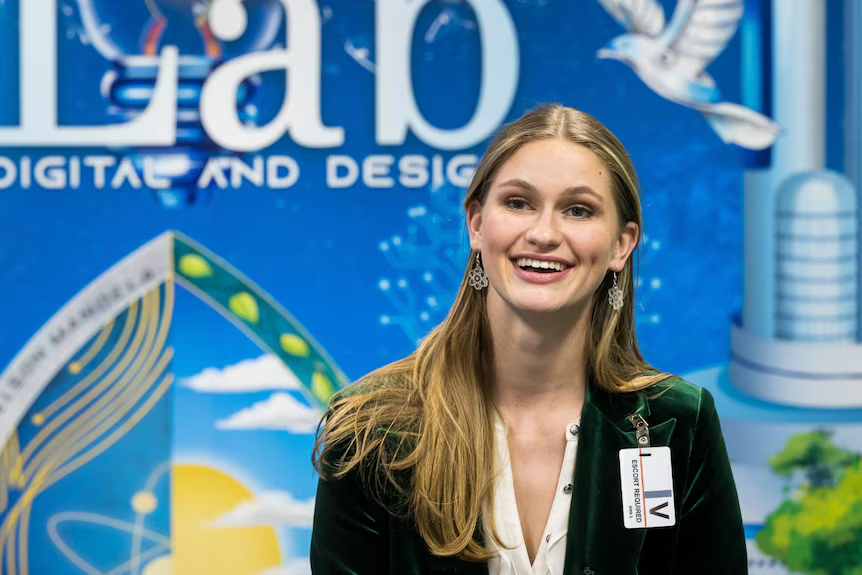
A Nuclear Engineer and Beauty Pageant Winner Advocates for Nuclear Energy in Australia
 Grace Stanke, a highly accomplished nuclear engineer and winner of the Miss America 2023 title, has landed in Australia on a mission to promote nuclear energy. Her visit is part of a campaign organized by Nuclear for Australia, a pro-nuclear advocacy group backed by Australian entrepreneur Dick Smith. Stanke’s unique combination of scientific expertise and public appeal makes her a powerful advocate in the ongoing debate over Australia’s energy future.
Grace Stanke, a highly accomplished nuclear engineer and winner of the Miss America 2023 title, has landed in Australia on a mission to promote nuclear energy. Her visit is part of a campaign organized by Nuclear for Australia, a pro-nuclear advocacy group backed by Australian entrepreneur Dick Smith. Stanke’s unique combination of scientific expertise and public appeal makes her a powerful advocate in the ongoing debate over Australia’s energy future.
Grace Stanke is no ordinary nuclear engineer. Dubbed “the new face of nuclear energy” by the Wall Street Journal, she has also earned a coveted spot on Forbes’ list of influential energy experts under 30. As a public figure, Stanke uses her platform to demystify nuclear energy, explaining its potential as a safe, clean, and reliable power source.
Working for Constellation Energy, the largest operator of nuclear reactors in the United States, Stanke is deeply involved in the practical applications of nuclear technology. Her work includes contributions to the revival of decommissioned plants, such as the infamous Three Mile Island reactor, now being repurposed to support the energy needs of tech giants like Microsoft.
During her Australian tour, Stanke expressed surprise at the level of resistance to nuclear energy in Australia.
“It honestly surprises me that there is such a big debate about this in Australia just because here in America, it’s one of the few things our politicians agree on,” she said. “Whether it is for the sake of clean energy, or for the sake of reliable energy, or for the sake of high-paying jobs for generations to come in the areas around nuclear power plants.”
Australia currently has a decades-long ban on nuclear energy, a policy that both Labor and the Greens support. However, as global energy markets evolve and countries turn to nuclear power to reduce carbon emissions, the debate in Australia has intensified.
Nuclear for Australia, led by 18-year-old Will Shackel, is determined to change public perception. Shackel sees Stanke’s visit as an opportunity to make nuclear energy more relatable to everyday Australians.
“She’s one of the most effective global nuclear advocates,” Shackel said. “And being a woman certainly helps. There’s a huge gender gap when it comes to support for nuclear power, and generally women are less likely to support it. So, having someone like Grace, who’s Miss America and a strong female advocate with a women-in-STEM message, will help resonate with women who might be on the edge in terms of nuclear power.”
Stanke has embraced a playful approach to her advocacy, referring to herself as “Barbenheimer” — a nod to the blockbuster films Barbie and Oppenheimer. Her light-hearted messaging aims to make nuclear energy more accessible and engaging.
“Nuclear power is literally just fancy hot rocks that boil water. That’s it,” she tells her 50,000 Instagram followers in a video.
Her ability to break down complex topics into digestible soundbites has made her a popular figure on social media, where she regularly addresses concerns about safety, waste, and costs.
Stanke’s visit comes at a pivotal time for Australia’s energy debate. With an upcoming federal election, voters will soon decide between Labor’s renewable-focused plan and the Coalition’s proposal to incorporate nuclear power into the nation’s energy grid.
Proponents argue that nuclear power’s reliability and low emissions make it an essential component of a diverse energy mix. Stanke believes Australians should at least have the option to consider nuclear energy.
“That ban should be lifted because Australians should at least give themselves the option,” she said. “Why eliminate options here? The key to a healthy energy grid is a diverse energy grid, and I think it should be up to the Australian people to decide what that looks like.”
In countries like the United States, nuclear energy enjoys bipartisan support as a means of decarbonizing the economy. With the rise of energy-hungry industries such as AI and data centres, nuclear power is being revisited as a stable, long-term solution to meet growing demand.
Stanke’s advocacy aims to replicate this mindset in Australia. By emphasizing nuclear’s potential to provide high-paying jobs, reduce emissions, and ensure energy security, she hopes to shift public opinion.
“This is about the future,” she said. “It’s about ensuring that the next generations have access to reliable, clean energy. I’m here to spark that conversation.”
As Australia grapples with its energy transition, Stanke’s visit highlights the growing global consensus on nuclear power’s role in achieving a sustainable future. Her message is clear: nuclear energy deserves a place at the table.




